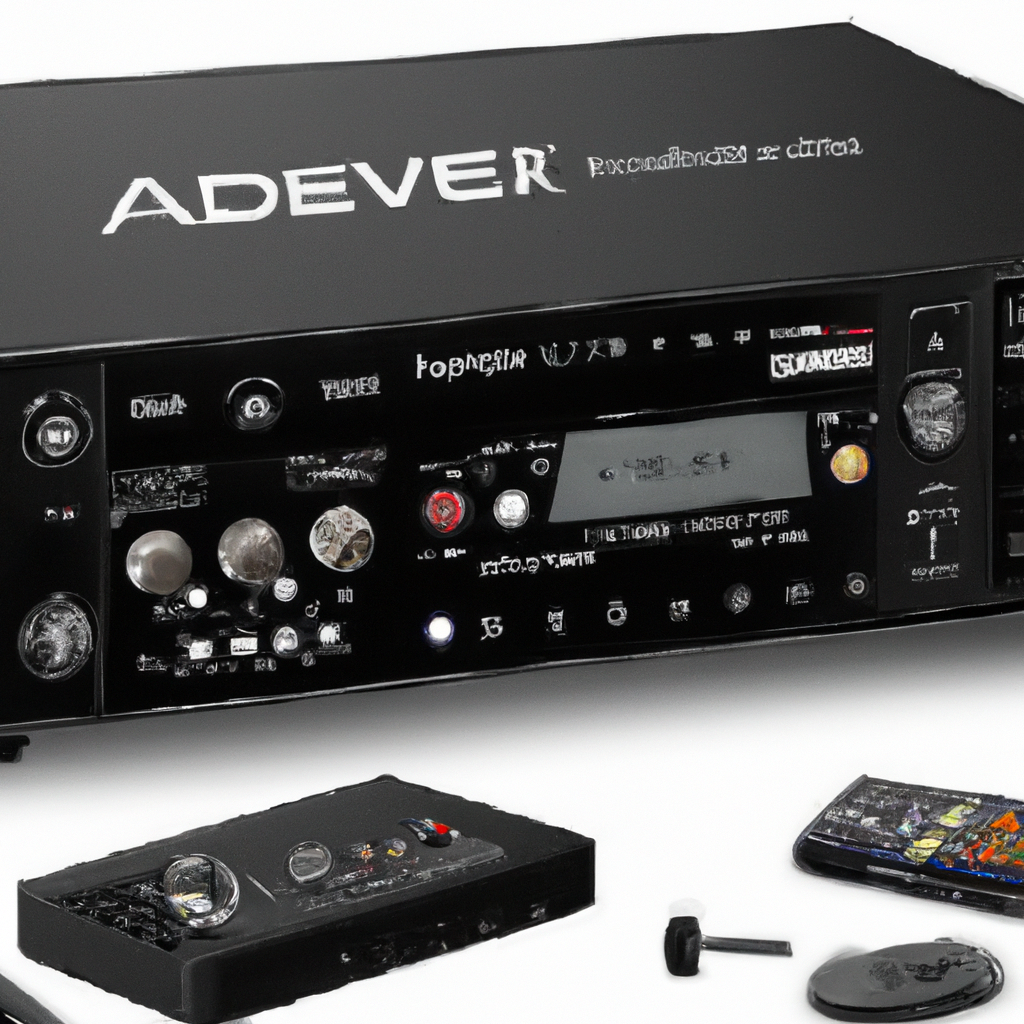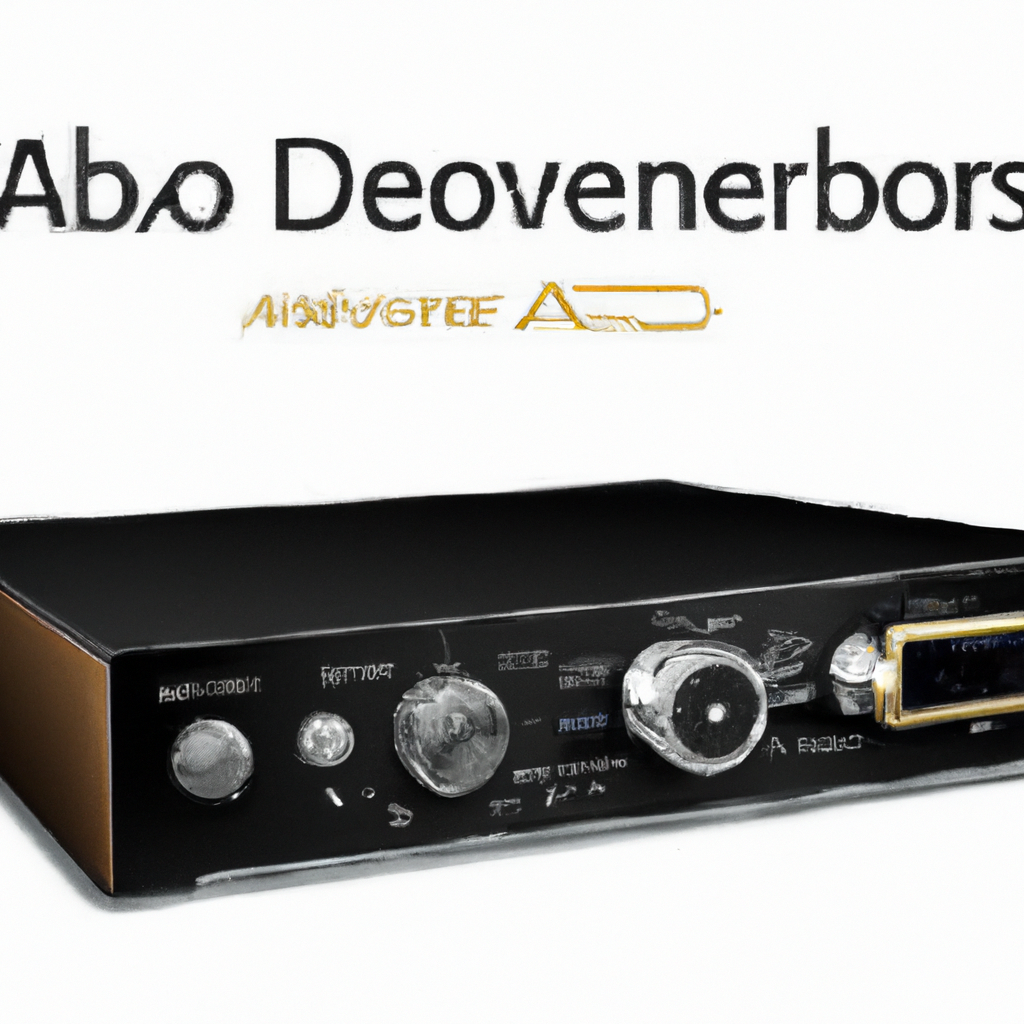
If you’re looking to enhance your audio and video experience at home, choosing the right AV receiver for your setup is crucial. With a plethora of options available in the market, it can be overwhelming to know where to start. Fear not! In this article, we will guide you through the key factors you should consider when selecting an AV receiver, helping you make an informed and confident decision. Whether you’re a movie enthusiast or a music lover, we’ve got you covered! So, let’s dive into the world of AV receivers and find the perfect match for your setup.
Choosing the Right AV Receiver
When it comes to setting up an audio and video system, choosing the right AV receiver is essential. An AV receiver acts as the central hub of your home theater system, connecting all your audio and video sources and delivering them to your speakers and display devices. With so many options available in the market, it can be overwhelming to make the right choice. This comprehensive guide will walk you through all the factors you need to consider in order to choose the perfect AV receiver for your setup.

Identify Your Needs and Requirements
Before diving into the realm of AV receivers, it’s important to analyze your needs and requirements. Take some time to visualize how you want your home theater system to function and consider the features and functionalities that are important to you. Think about the audio and video sources you plan to use, the number of speakers you need, the desired sound quality, and any special features or functions you might require, such as multi-zone capability or voice control.
Consider Your Budget
Setting a realistic budget range is crucial before you start exploring AV receiver options. Determine how much you are willing to invest in your audio and video system and allocate a portion of that budget specifically for the receiver. Keep in mind that higher-priced receivers often come with advanced features and better audio quality, but there are also budget-friendly options that still deliver impressive performance. By knowing your budget, you can narrow down your choices and focus on receivers that meet your financial constraints.
Determine the Room Size and Layout
The dimensions and layout of your room play a significant role in selecting the right AV receiver. Measure the room carefully and consider how you plan to arrange your speakers and seating area. This will help determine the power and channel configuration required to properly fill the space with sound. Additionally, take into account the acoustic characteristics of the room, such as reflective surfaces and potential sound absorption, as this can affect the overall audio performance.
Evaluate Compatibility with Devices
Ensure that your chosen AV receiver is compatible with all your existing devices. Check the inputs and outputs of the receiver to ensure they match the connections on your sources, such as game consoles, Blu-ray players, and streaming devices. Additionally, consider the future compatibility of the receiver with potential devices you may add to your setup. It’s always beneficial to have some extra inputs and outputs to accommodate future expansion.

Check Audio and Video Formats Supported
Make sure that the AV receiver supports the audio and video formats you plan on using. Verify the audio codecs supported, such as Dolby Atmos or DTS:X, as these formats can significantly enhance your audio experience. Confirm that the receiver also supports the video resolutions you require, such as 4K or 8K, to ensure a crisp and clear picture. Additionally, consider if the receiver supports HDR (High Dynamic Range) and Dolby Vision, which can provide stunning visual enhancements.
Decide on Number and Type of Inputs and Outputs
Evaluate the number and type of inputs and outputs available on the AV receiver. Determine how many HDMI inputs you need to connect your various devices, such as gaming consoles, Blu-ray players, and cable boxes. Consider if you require any additional analog or digital inputs for older devices or specialized equipment. Assess if HDMI outputs are necessary to connect multiple display devices or if a single output is sufficient. Also, evaluate the type and number of speaker outputs to ensure compatibility with your speaker setup.

Assess Amplifier Power and Channels
Matching the power requirements of your speakers to the AV receiver is crucial for optimal audio performance. Determine the power rating of your speakers and choose an AV receiver that can adequately drive them. Additionally, consider the channel configuration of the receiver. Channels determine the number of speakers that can be connected and the surround sound format that can be achieved. Make sure the receiver has the right channel configuration to suit your desired audio setup.
Look for Network and Streaming Capabilities
In today’s connected world, network and streaming capabilities are essential features to consider when selecting an AV receiver. Assess the available options for wired and wireless network connectivity. This is particularly important if you plan on streaming content from online services or accessing your digital music library. Additionally, check if the receiver integrates with popular streaming services and supports multi-room audio, allowing you to enjoy music in different areas of your home simultaneously.

Review User Interface and Control Options
The user interface and control options of an AV receiver can greatly impact your overall experience. Look for a receiver with an intuitive and user-friendly interface that allows for easy navigation through menus and settings. Consider if the receiver offers a mobile app or dedicated remote control that provides convenient control over your system. Some models also offer voice control integration, allowing you to operate the receiver using voice commands.
Consider Future Upgradability
Investing in an AV receiver is a long-term decision, so it’s important to consider its future upgradability. Evaluate the options for firmware upgrades, as manufacturers often release updates to improve functionality and compatibility. Assess if the receiver has expansion capabilities, such as additional input modules or preamp outputs, which can enable future modifications or upgrades to enhance your system.
By following this comprehensive guide and considering all the relevant factors, you are well-equipped to choose the right AV receiver for your setup. Take your time, do thorough research, and make an informed decision that aligns with your needs, budget, and future aspirations. With the perfect AV receiver in place, you can elevate your audio and video experience to new heights. Enjoy the immersive and captivating world of home theater!






